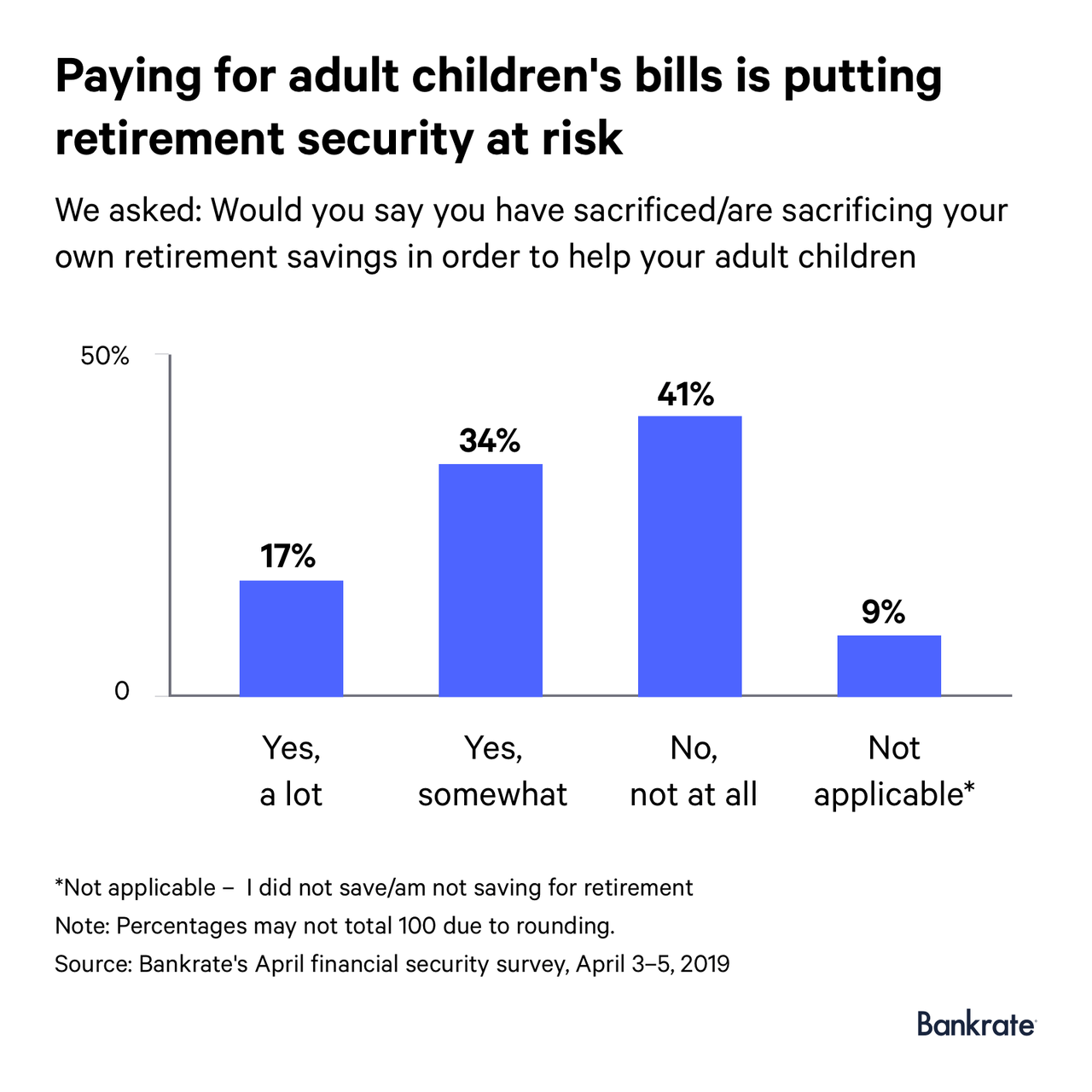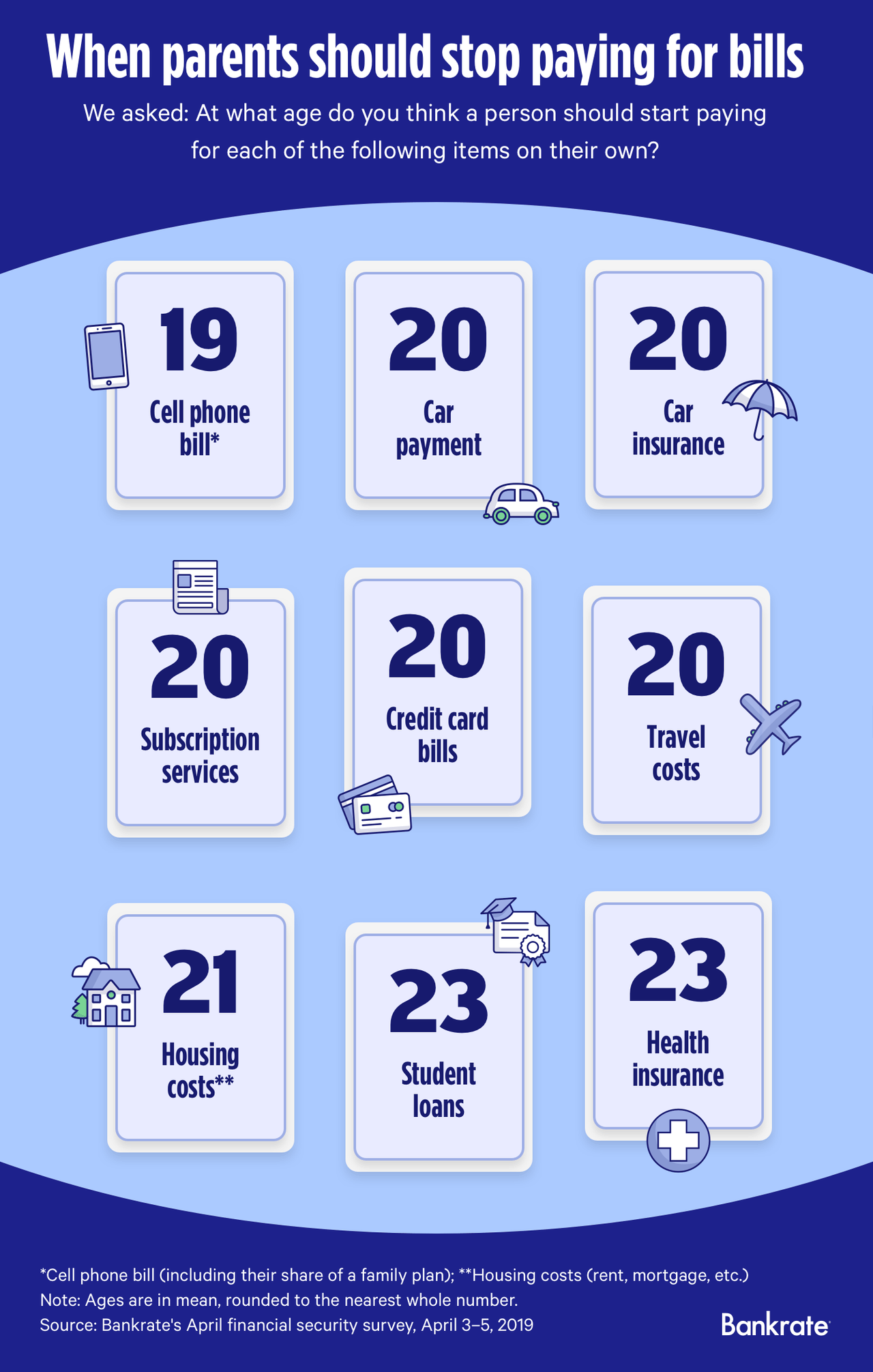As young Americans drown in debt, growing numbers of parents have been footing the bill for their kids’ car insurance, cell phone bills, health care costs and debt payments – often at the expense of their own retirement.
A new survey from Bankrate.com reveals that 50% of American parents say they have sacrificed or are sacrificing their own retirement savings in order to help their adult children financially.
The survey asked at what age Americans think people should start paying for their own bills. According to Bankrate, “Most of the results dovetailed the traditional mindset that 18 is the golden age of adulthood — except when it came to big-ticket items.”
Car payments and insurance, cell phone bills, subscription services, travel costs and credit card bills all had the majority of total respondents saying that individuals between 18 to 19 years old should be paying for these bills themselves.
For example, the average age respondents expect individuals to start paying for their cell phone bill was 19 years old. Younger generations, or Gen Z and millennials, both said that age should be 20; Gen X and the silent generation said 19, while Boomers said 18. –Bankrate
Meanwhile, a March 2019 Bankrate survey found that more than 1 in 5 working Americans aren’t saving any money for retirement, emergencies or other financial goals, according to the report.
The result is that Americans are also working longer – with 25% of the workforce projected to be 55 or older by 2024, according to the Bureau of Labor Statistics.
Why is the happening?
Bankrate’s senior economic analyst Mark Hamrick suggests that there are a variety of reasons parents feel compelled to help their adult children – and not all of them include spoiling them.
“This is for better and worse the new normal because of the evolving approaches parents have taken to raising their children,” says Hamrick. “And it’s a result of some of the ongoing financial challenges that many families face, some of which were caused by the financial crisis and the Great Recession.”
A lack of substantial wage growth is also a factor, though recent gains are a “relatively modern phenomenon.”
“It’s doing very little to recapture the lost gains in the earlier economic expansion that’s approaching the 10 year anniversary,” says Hamrick.
Other culprits include the rising cost of education and the rising popularity of higher degrees.
“This is the ironic, unintended expense of people staying in school longer,” Hamrick says. “The way young people come of age has changed somewhat over the past 50 years or even longer — there’s no longer a sense of immediate need for young people to enter the workforce, even on a part-time basis.”
And when you’re not working, you can’t pay the bills — that’s where Mom and Dad come in. –Bankrate
How to set boundaries
Psychiatrist Dr. Laura Dabney says that parents who are sacrificing their retirements for their adult children’s immediate needs should reevaluate their situation – and acknowledges that having the conversation about cutting off financial assistance can be intimidating.
But the longer the conversation is delayed, Dabney says, the more likely it becomes for resentment to start building from both parties, especially from the parents if the financial assistance is jeopardizing their retirement plans. –Bankrate
“You have to decide what works best for you and then present that,” says Dabney. “Start with being honest about that. And then, listen to the child — and maybe come up with a compromise. Take the two wants and needs from both sides and come up with a plan that works for everybody so there’s no resentment that eventually gets in the way.”
“That thrill you get of stepping into adulthood — whenever you do that for your child, you’re robbing them of that great joy of figuring out and doing something on their own,” she added. “It can be hurtful for those children for you to be ‘helping’ that much.”
via ZeroHedge News http://bit.ly/2UWxsgb Tyler Durden

